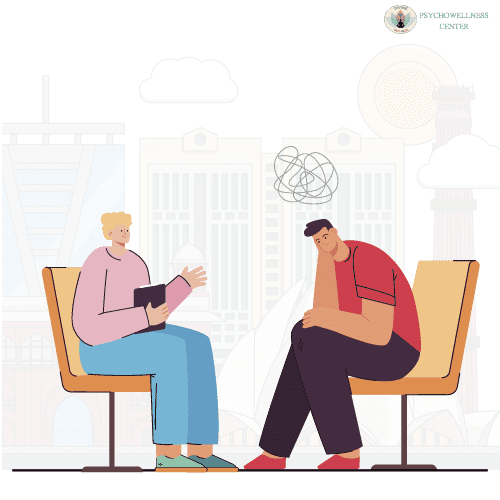5 symptoms of being Agoraphobic

Do you often try to avoid certain situations where you need to go out of your city, home, or sometimes your room or bed? Have you ever wondered why do you feel scared of coming out of your comfort zone? This could be Agoraphobia.
Agoraphobia is not laziness or being lethargic, it is a certain fear inside you which pulls you off from going out to the places. Understanding Agoraphobia is important and early detection of it might help you save a lot time spend in curing it. According to Dr. R.K Suri an acute and highly intense Agoraphobia might take as long as 3 years to cure. Differentiation between Agoraphobia and regular laziness must be emphasized and understood as Agoraphobia is a serious psychiatric condition whereas the laziness is a normal behavioural condition which can never develop into Agoraphobia. Psychowellness Center, presents these 5 symptoms which can help in early detection of Agoraphobia.
- Strange or unrealistic feeling – People with Agoraphobia always say that they are feeling unreal. They might look normal to everyone around them but internally, they feel strange and unreal world around it. If they are in their comfort zone which is mostly their home, they behave and perform all the activities as any other person but when it come about going out of home/room they start feeling unreal or strange. This could be a very early sigh of being Agoraphobic. Remember, this is not because of laziness.
- Unbelievable reality – “It is UNBELIEVABLE!” This could be a regular expression when you see or face a happy or a shocking situation. People with Agoraphobia don’t say it for such exclusive situations. They keep on saying it for obvious things and objects because of their fright. This is often observed that an early agoraphobic experience hard time in believing buildings, open spaces, crowded places, unfamiliarised vehicles or may be talking to unknown people too.
Sometimes depression also lead to agoraphobia
- Frightening Situations – Agoraphobia is about the fear of getting a panic or anxiety attack. People with Agoraphobia try to avoid going on the flyovers, underpasses, lifts/elevators, restaurants, long distance drives and many more such outgoing activities. These situations can fright them up to the level that they can start to cry or even self-hurt. An intense Agoraphobic person can opt to stay at home just to avoid the fright.
- Lost hope – Agoraphobic people tend to lose hope very soon as they are not able to deal with the fright caused by it. The fear of getting panic or anxiety attack reaches to a level where a person with Agoraphobia accepts the life confined within the room or home.
- Frustration and inexpressiveness – Agoraphobia is comparatively a less common phobia. According to an article only 3% of the world’s population might have it. People with this mental issue are often not able to express their feeling as they don’t even understand the unrealistic behaviour and its cause. Chemical imbalance in the brain can cause it and it has no relation to any trauma or allergies. People with this psychiatric condition tend to get more frustrated and inexpressive as they don’t understand what they feel sometimes.
If you feel any of the above-mentioned symptoms, you better have a chat with your counsellor. Early detection of this mental issue can help psychologists to cure it fast. Dr. R.K. Suri has more than 36 years of clinical psychology experience and has expertise in handling of such issues.
Chat or talk online with best psychologist and psychiatrists by clicking here
For free psychological assessment click here




SHARE